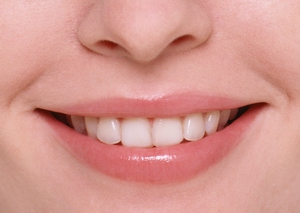 A team of French researchers from Paris, led by Sylvie Babajko, have found out that rats exposed to daily Bisphenal-A develop a dental condition called, molar incisor hypomineralisation. This condition, as seen in humans, is an abnormal accumulation of organic materials on the teeth, making teeth sensitive and more prone to cavities.
A team of French researchers from Paris, led by Sylvie Babajko, have found out that rats exposed to daily Bisphenal-A develop a dental condition called, molar incisor hypomineralisation. This condition, as seen in humans, is an abnormal accumulation of organic materials on the teeth, making teeth sensitive and more prone to cavities.BPA ravages enamel formation
At the heart of the dental damage is BPA exposure, which is responsible for affecting the process of enamel formation, known as amelogenesis. In their study, reserchers exposed the rats daily to BPA for 30 to 100 days. By the 30th day of exposure, the rat's teeth were already showing major signs of molar incisor hypomineralisation. The researchers found very low levels of an enzyme that aids in removing the buildup of enamel proteins.
In essence, the BPA exposure effectively disrupts protein removal by disrupting the enzymes that play an important role in removing proteins that form scaffolding for the enamel.
Researchers find a method to detect early BPA exposure through dental observation
Surprisingly, after 100 days of BPA exposure, the rat's enamel had returned to normal. Even so, the researchers understand that human enamel defects are irreversible. As the rat's enamel returned to normal, the same doesn't occur in humans, but that's not the end.
The good news, the researcher suggested, is that by studying human enamel, orthodontists may be able to predict high levels of BPA exposure early to deter further endocrine disruption in the patient's body.
The researchers report, "Amelogenesis is only sensitive to MIH-causing agents during a specific time window during development," adding, "Because human enamel defects are irreversible, MIH may provide an easily accessible marker for reporting early endocrine disruption in humans."
BPA being directly applied to the teeth through dental sealants
By studying patient's tooth enamel, the dental industry could warn patients about high levels of BPA that are ravaging their teeth and how their hormones may be affected as well.
This means that dental sealants, which contain derivatives of BPA which form into full blow BPA when mixed with saliva, should be completely replaced. Sealants were employed in the 1980s as the American Dental Association backed them as "an important way to prevent tooth and gum decay."
This statement needs reexamined, due to these new studies showing BPA damage on tooth enamel. Since BPA levels are found highest in the mouths of those who have just received dental sealants, it's important to note how BPA is directly affecting tooth enamel by being applied directly to the teeth. Not only are teeth affected, but the entire development of a human is at stake here. Since BPA mimics the hormone estrogen, many experts warn that even in very small doses, hormones can be altered.
BPA, an evil endocrine disruptor
As an endocrine disruptor, BPA affects the body's natural ability to regulate hormones in the endocrine system, which contains several series of glands - the pituitary, adrenal, and thyroid.
This means BPA disrupts growth, metabolism, and sexual development.
Since people today are facing an onslaught of BPA exposure, from plastic bottles, to the linings of metal cans, to baby bottles and even to dental sealants, there is a constant war going on inside the human body over sexual development and metabolism. This may help explain the increasing loss of gender identity and the growing rate of obesity affecting culture today. Although other factors obviously play a role in these struggles, the scientifically studied BPA disruption of the endocrine system cannot be ignored. Since BPA manipulates hormones, making them go up or down, it's no surprise why more women are having their feminine parts removed due to cysts and why PMS is becoming commonplace. With plastic bottles filling the environment, allowing BPA to leach into cells, it's no surprise why guys can't get it up, why transgenderism is a growing trend, and why women have a hard time with their menstrual cycle.
Protect your teeth and your reproductive ability
Eliminate use of plastic bottles, baby bottles, and canned food. Forget about getting sealants on your teeth from the dentist. Are these things worth having if one has to deal with reproductive problems in the future? Everyone is affected different, but it is a fact that BPA disrupts the endocrine system.
Stop using BPA. It's not needed. Speak out against it. Prosecute against it. It's not needed. It's disrupting humanity.





